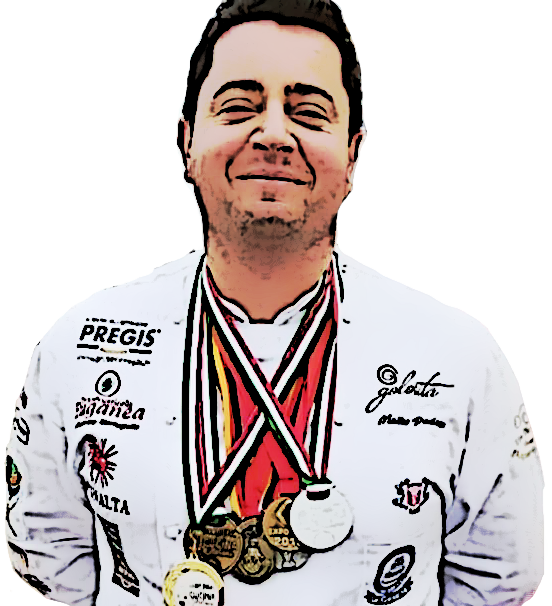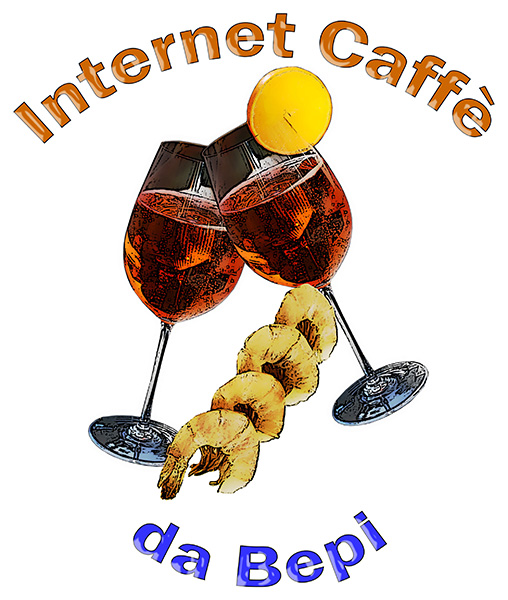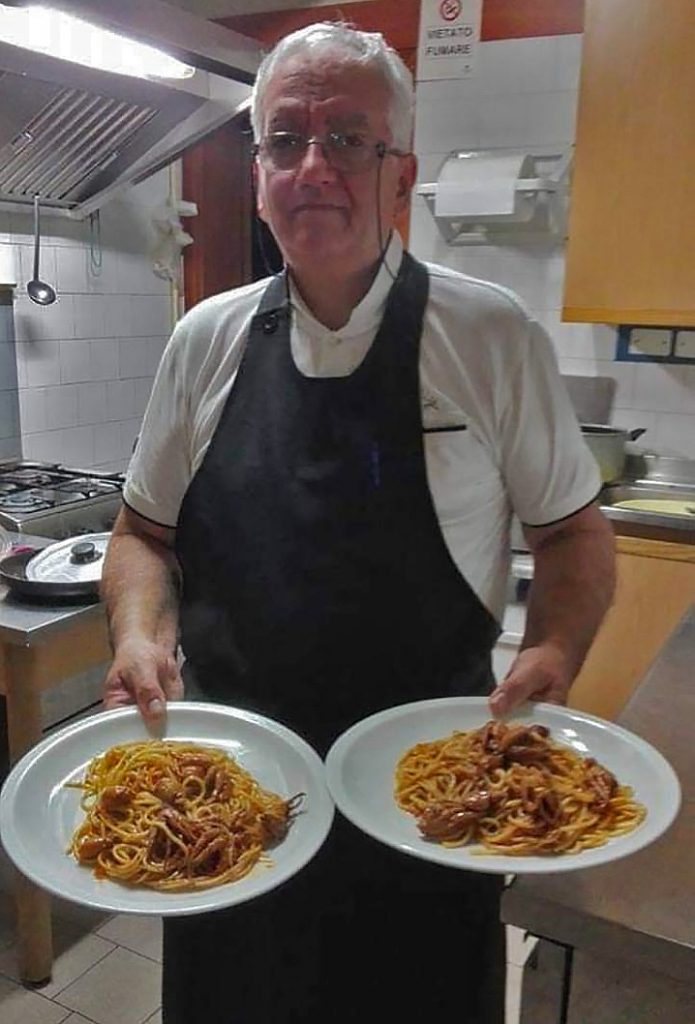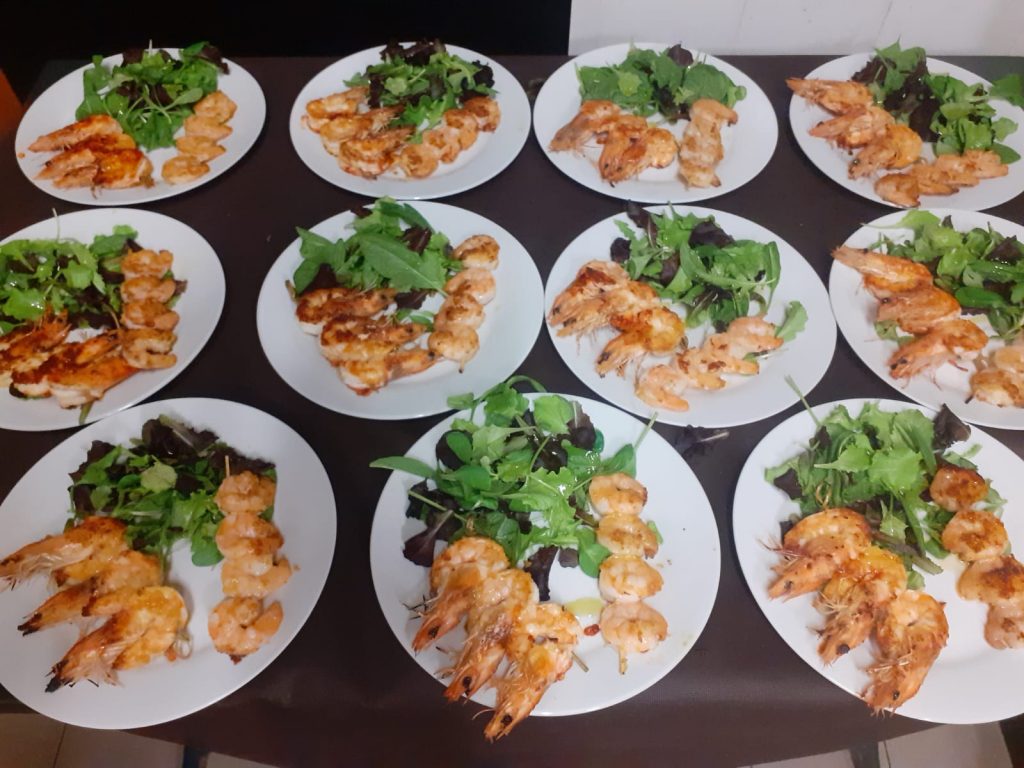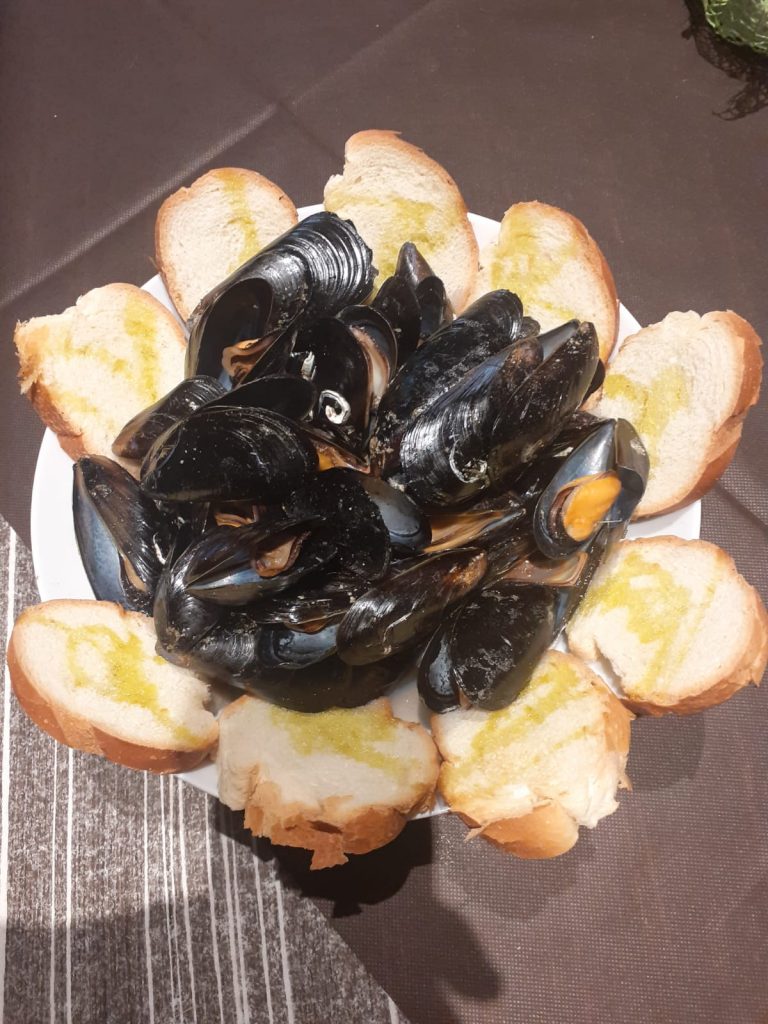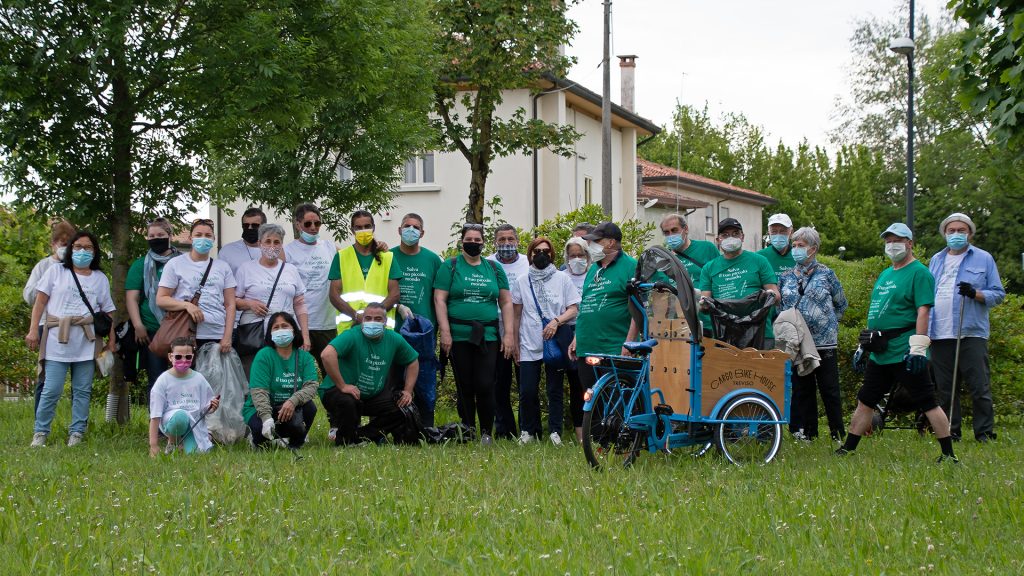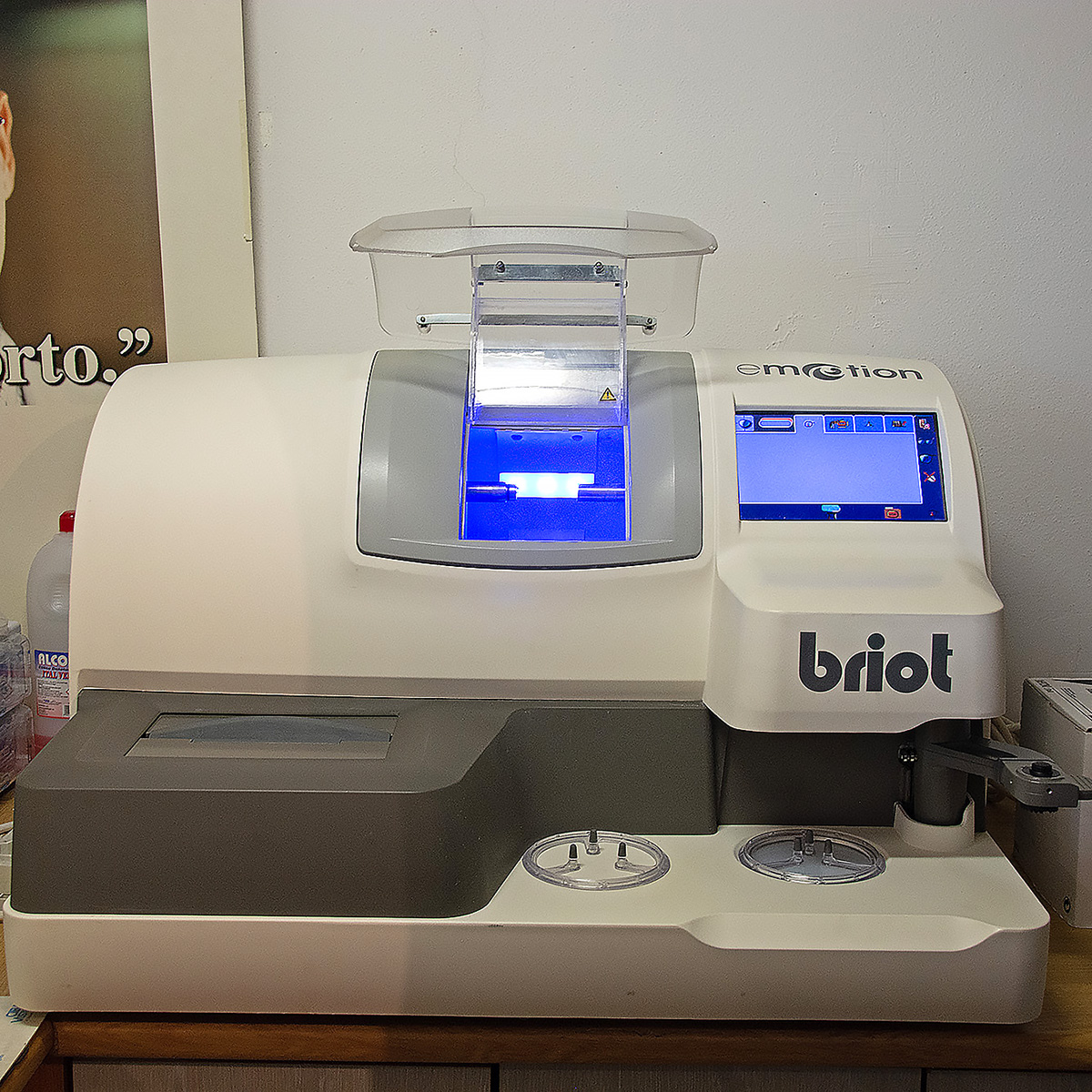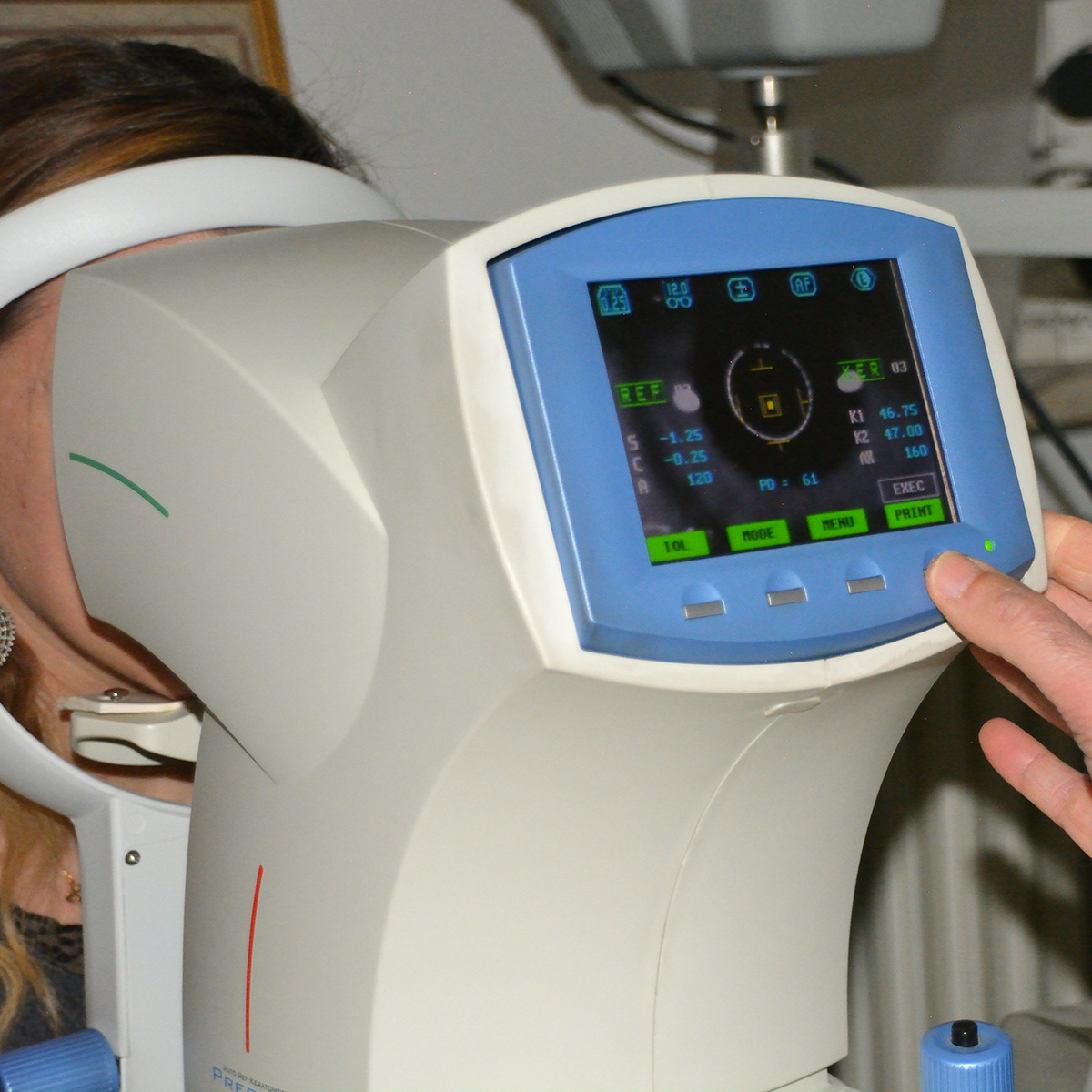Interview with chef Matteo Padoan
Interview with chef Matteo Padoan
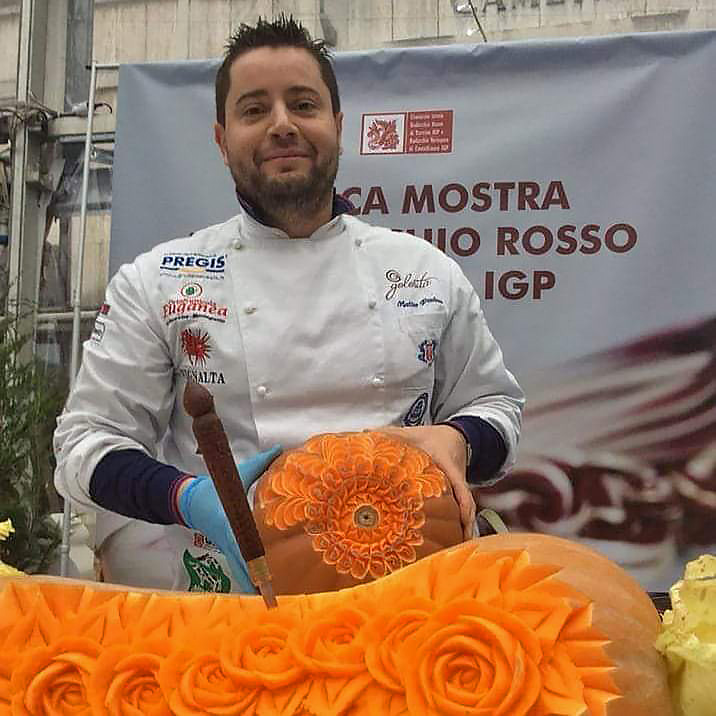
Born in Treviso, Chef Matteo “Teo” Padoan is a nationally and internationally recognised cook and carver. Member of the F.I.C. Association (Italian Cooks Federation), captain of the carving team of the province of Treviso, Chef Matteo reaches several times the world top in culinary art competitions. In 2016 he took part in the cooking Olympics (carving art) in Erfurt, Germany, winning the bronze medal after a challenge that saw more than 170 countries compete for the gold with 4000 participants from all over the world. In 2017 he won gold at the Italian championships in Rimini. In February 2018 he counts two medals also in the national championships. Silver in the “Opere Pronte” category (where the work is created before the event), and bronze medal in the “Live” competition (where the creation is carried out on site). In October of the same year he competed in the World Championships in Luxembourg, winning two silver medals in the Ready-made and Live categories, and finally, a bronze medal in “Intaglio vegetali pronti” (a discipline that involves carving previously prepared vegetables). These results put him among the top ten carvers in the world. After a professional period in his hometown, Chef Teo moved to the Riviera Romagnola where he worked for the best restaurants and hotels on the coast, conquering both eyes and palates by presenting his dishes and artistic creations. Today he successfully manages the kitchens of a well-known hotel in Jesolo, alternating his work in the kitchen with his competitive commitments.
Chef Matteo, thank you for agreeing to meet us and for granting us this interview. As you know we at Etichetta Veneta are constantly looking for great professionals in our area to tell their personal and professional stories and the path that led them to success. We want to share these stories so that they can be an inspiration to those who want to embark on an entrepreneurial and professional career.
Do you prefer Chef Matteo or Teo?
Matteo
Who is Chef Matteo Padoan?
Matteo was born in Quinto di Treviso 43 years ago. He is the son of mum Elsa, dad Gelindo and brother of Luana. Today he is happily engaged to Valentina. I’m a very simple, humble person who doesn’t particularly like the spotlight. I carry out my work with commitment and passion and I consider myself quite lucky from a professional and personal point of view.
When did your passion for cooking begin?
I can say that I have had this passion since I was a child. I remember with nostalgia the wonderful moments spent in the kitchen helping grandma Ines and mamma Elsa. When I think back to those moments, the scents, sounds and sensations that cannot be forgotten come to mind. I can still hear the voices of my mother and grandmother, busy in the small kitchen in Badoere, in the province of Treviso. I can still see grandmother Ines’s big, rough hands patiently and skilfully kneading the flour to make the crostoli during carnival time. Even as a child I was eager to learn and delighted in helping my grandmother by preparing the eggs for her incomparable Tiramisù.
Later, after a career in construction, my father Gelindo took over a small fishing lake in Quinto di Treviso. Over the years, my father decided to increase the offer for our customers by creating a real restaurant “Il Mali Club”, open at all hours. For my family, it’s a fortunate and satisfying time, and for me, of course, a training and education camp. As you can see, I practically grew up in the kitchen, and with me my passion for cooking. A passion that is still young, dynamic and alive.
Do you still have Grandma Ines’ tiramisù recipe?
Yes of course and I use it too.
Can you tell us some secrets?
Nooooo !!!!!!!
Can you tell us about your course of study to become a chef?
After compulsory schooling, I attended the Treviso hotel school. At that time the school was still named after the Italian actor and gastronome Giuseppe Maffioli (Padua, 28 April 1925 – Treviso, 3 June 1985 ), who is credited with the paternity of Radicchio Rosso di Treviso and the first historical identification of our dessert par excellence: Tiramisù. Through the pages of his quarterly magazine “Vin Veneto”, Maffioli attributed the birth of Tiramisù to a recipe prepared by the chef, Roberto Linguanotto, at the “Alle Beccherie” restaurant in Treviso. Today the institute is named after the journalist and food and wine expert Massimo Alberini (Padua, 11 April 1909 – Venice, 4 May 2000). I attended for five years from 1992 to 1997, gaining a qualification in the first three years and a diploma in the next two. I remember that in 1992 there was a project underway called “Project 92”, a change from previous courses in that practice was supplemented by an increasingly extensive and demanding theoretical part, with the study of foreign languages and international cuisine.
Several times at the top of international competitions, among the top ten carvers in the world. When did you realise you had this great talent inside you?
I took my first steps towards Food Art during my time in Rimini. In 2004 I was working at a well-known hotel in Rimini and decided to take part in a course promoted by the “Accademia Maestri Pasticceri Italiani” (Academy of Italian Master Confectioners) and sponsored by Fugar: a leading company in the production of ingredients for ice-cream parlours and pastry shops. I was immediately fascinated by the carving technique and over the next twelve years I cultivated my passion, trying to improve myself more and more. In 2016, the late Orazio Messina, owner of “Le Golosità” in Bassano del Grappa, contacted me to ask me to join his Food Art group. I had the opportunity to experiment and learn new processing techniques with new raw materials such as pulled sugar, blown sugar, margarine, marzipan, and many others. It was a wonderful experience that I will always carry with me along with the memory of dear Orazio.
In 2019 I was contacted by the provincial president of the Assocuochi association of Treviso, Alcide Candiotto, who proposed me to join the carving team and take over as captain. I accept, and so begins a new adventure between competitions and events.
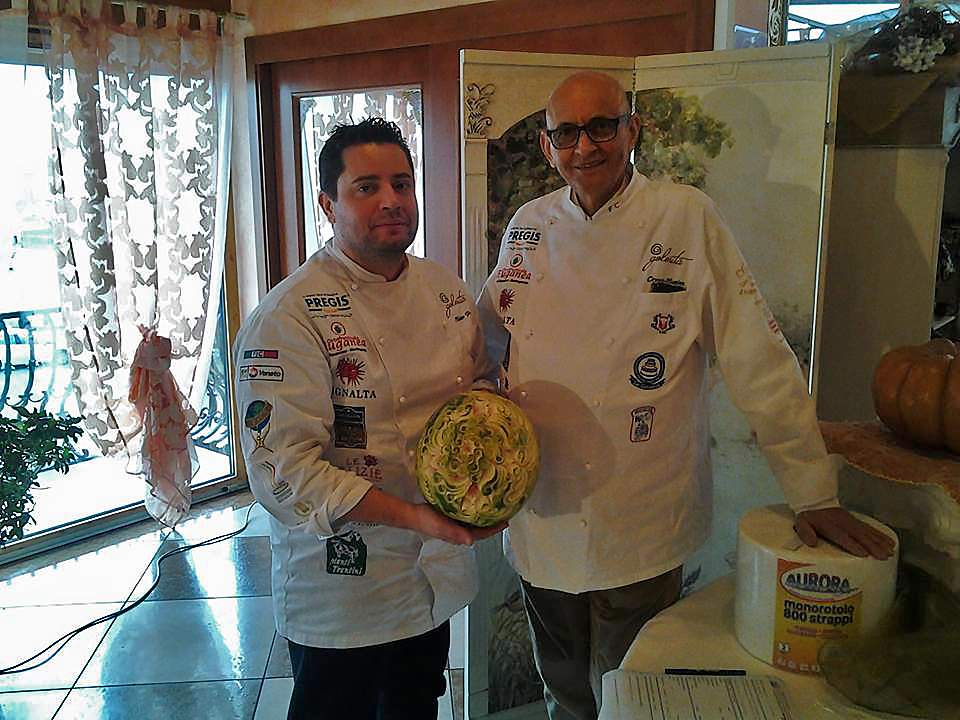
You don’t hear much about these events. Doesn’t it seem strange to you today that cooking has become, in some respects, show business?
We cannot compare our artistic competitions with today’s image of cooking and our profession. Of course we suffer from a lack of media coverage, but the commitment and professionalism that I have witnessed over the years have nothing to envy from the many reality shows that today permeate the television channels and enter our homes. Like so many of my colleagues, I wish that this art, in all its facets, could find more media coverage. It is up to us who are the protagonists to commit ourselves in the future in this direction.
What do you think about the spectacular nature of cooking today?
I don’t mind that our profession and cooking have become so topical today, and that they have a strong following in terms of ratings. We are witnessing a dizzying increase in the number of television programmes, and not only, that talk about cooking. Thousands of digital channels have sprung up that tell the story of Food made in Italy. Recipes, traditions and peculiarities, characteristics that only our country can boast and that are unmatched in the world. However, I would like to warn the many young people who see their future job in this profession, perhaps attracted by the spectacularity it has achieved in recent years. The job of a chef goes far beyond what we see on television. Being a chef and managing a kitchen implies a much broader vision that does not stop at the cooker alone. Supplies, products and collaborators are just some of the countless commitments that a chef faces on a daily basis. In Reality Shows, the protagonists are cooks and dishes: they have to satisfy the palates and judgements of established and starred chefs. But let’s not forget that in real working life, in every small or large restaurant, the only judges you will meet are your customers. They are the ones who will inflexibly assess your work and determine your success or failure.
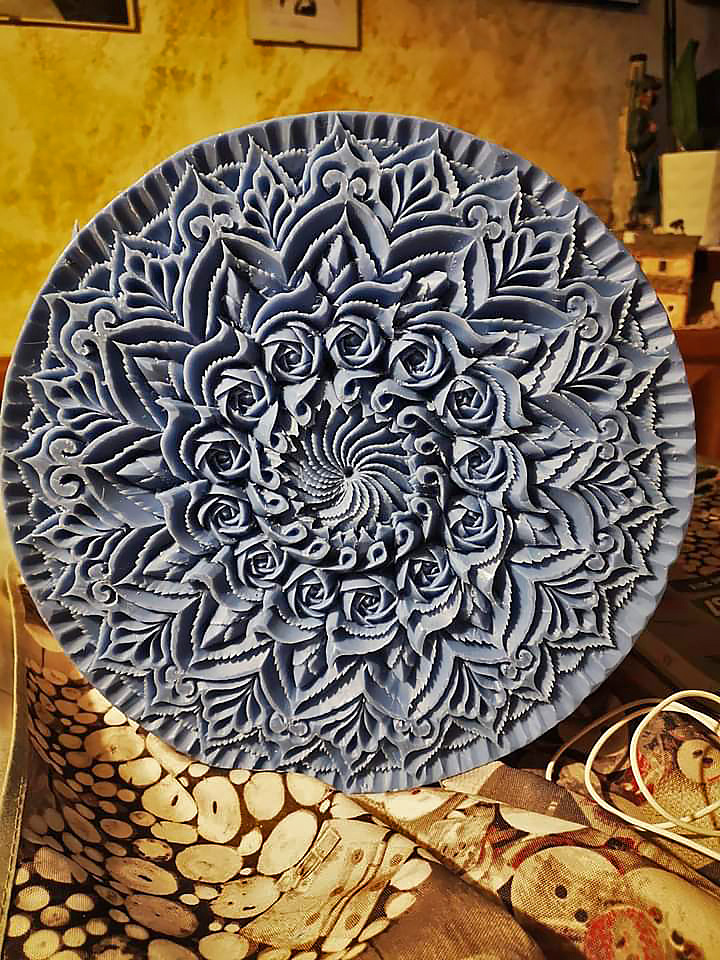
What is the secret of Chef Matteo and his success in business and competitive dress?
There is no secret to success in one’s profession or passion. Without appearing rhetorical, I can only say that commitment, dedication and hard work are fundamental for success in any field in which you operate. Never think you have arrived. Study, update and compare yourself with colleagues. Try, fail and try again. Today we have technological means that allow us to open a window on the world with a simple click. We must take advantage of this opportunity and make the most of it.
Have you ever thought of working abroad where Italian chefs are in great demand?
Honestly, no. I love my country and I want to continue working in Italy.
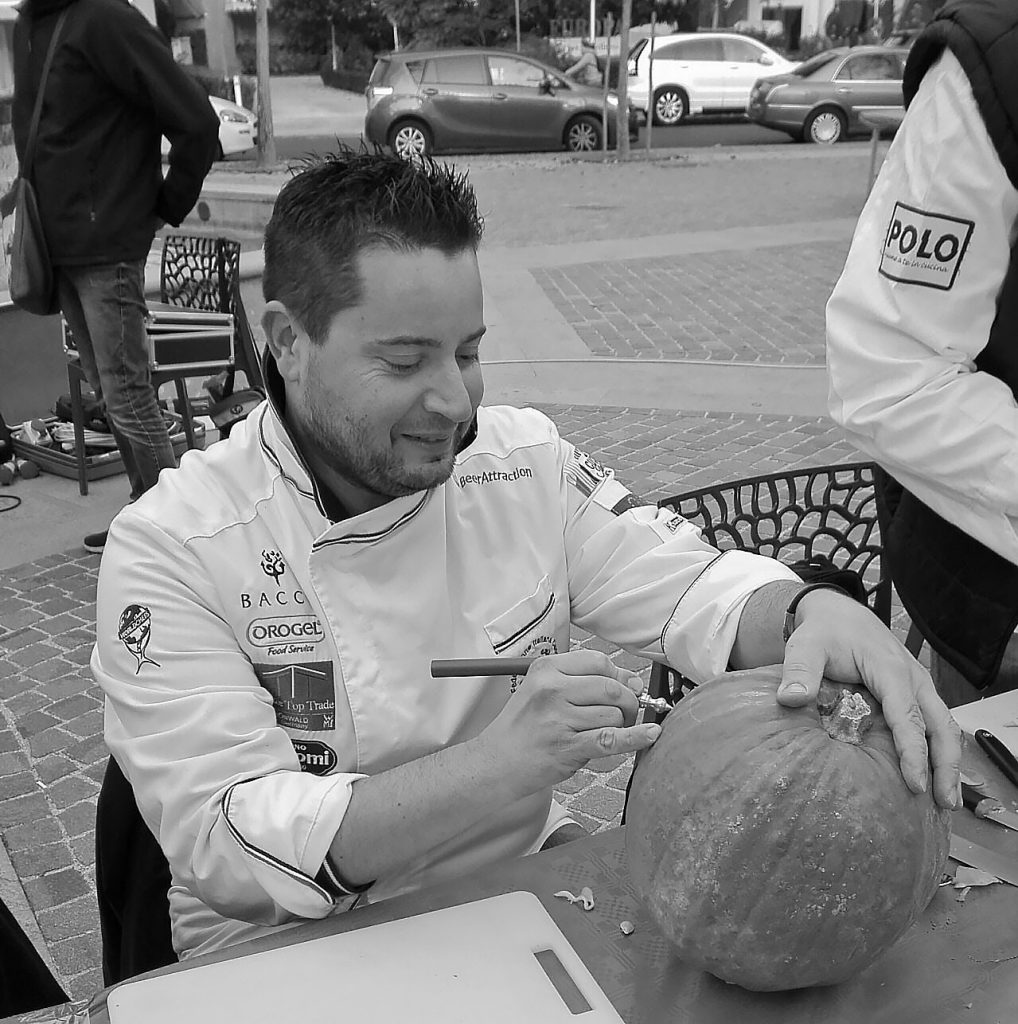
There is no doubt that Italian cuisine is the most popular and appreciated cuisine in the world, but we must remember that no matter how much effort we put in, it will never be the same as cooking here at home. Raw materials are fundamental to the success of a good Italian dish and often our compatriots abroad are forced to adapt to the needs and tastes of the locals, thus distorting some of the fundamental rules that distinguish our best recipes.
Unfortunately, we are seeing fewer and fewer young Italian chefs in our national kitchens. In your opinion, what are the reasons for this “talent drain”?
Undoubtedly, the triggering factor is always economic. Entrepreneurs in the sector find themselves forced to deal with labour costs that do not want to fall, and as a result they cannot offer the fair remuneration that a young talent deserves. So they turn to labour that is often foreign, or lacks the skills that a suitable course of study can offer. This is a legitimate attempt to limit costs and to continue operating. Outside Italy, on the other hand, after a proper apprenticeship, our young people are particularly appreciated and, if they are sufficiently prepared, can achieve respectable professional and economic results.
You have managed and still manage kitchens that require a lot of staff. How do you deal with your staff?
Mutual respect is fundamental. It is necessary to be chameleon-like, i.e. to be able to adapt to situations and people. A good dose of empathy is essential. One must know how to be immovable and strict when necessary and at the same time build a relationship of trust and friendship.
Renunciations, sacrifices, obstacles.
Our job involves sacrifices, like many other jobs. Obviously, working in the restaurant industry means giving up ‘normal’ working hours, not having weekends off, sometimes gruelling shifts and much more […]. But everything can be tackled when the love and passion for what you do prevails. Unfortunately, there have been obstacles and there will be obstacles in the future, but we fight them with a positive spirit, relying on ourselves and those around us.
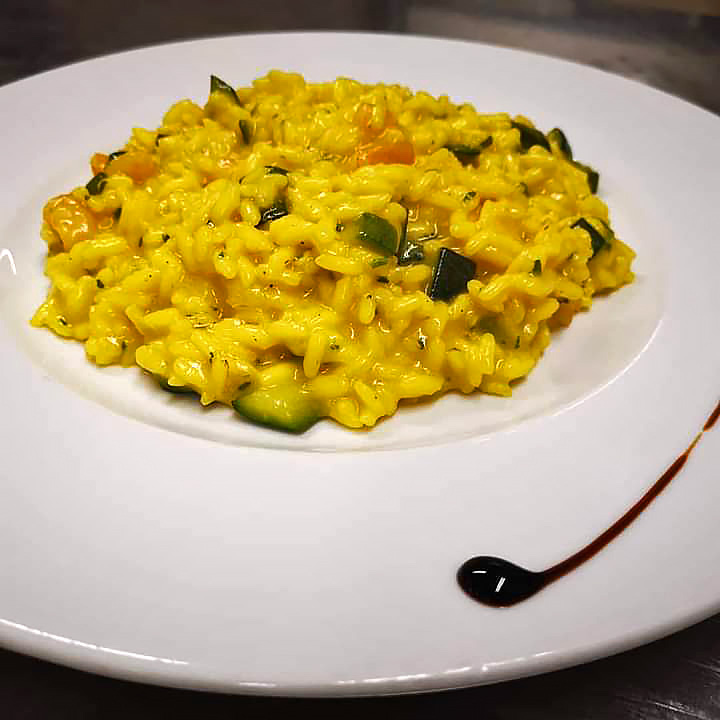
What are they, or what is Chef Matteo’s signature dish?
I honestly don’t have a favourite dish. I like to diversify my cooking by always trying new things. But if I had to give an answer, I would say that risottos and desserts are a small passion of mine. These days, thanks to the natural and organic products produced by my fiancée Valentina Tescari on her farm in Vitorchiano, a small village in the province of Viterbo, I am rediscovering the use of spices such as saffron, fennel, lavender, marigold flowers, rose petals and many others that I combine with my risottos and traditional Veneto dishes.
What are your next commitments?
Let’s wait until 2022 for the Italian championships and the world championships to be held in Luxembourg.
Chef Matteo, why did you choose to join Etichetta Veneta?
Mi piace il Vostro progetto basato sul racconto delle persone e delle loro storie e non semplicemente del prodotto finito. Viviamo un’epoca straordinaria dove però la velocità delle nuove tecnologie ha indubbiamente sottratto uno spazio importante al rapporto umano. Condivido con Voi l’idea di ricerca e di comunicazione e spero di poter dare anche un mio piccolo contributo in futuro.
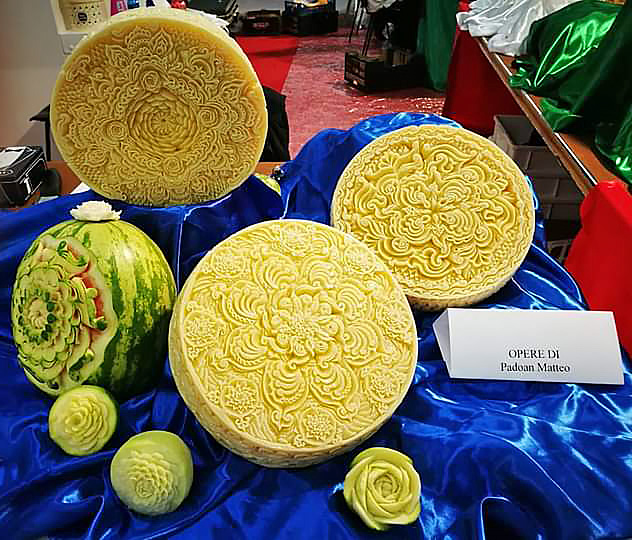
What advice would you give to young people who want to pursue the same career as you?
Believe in yourself, never stop, but above all do not adapt to the laws of the market. Ask for the right recognition if you deserve it. Passion, dedication and study are your best weapons, use them and you will find the right way to success.
Interview by Abiti Luciano
Interview with chef Matteo Padoan Read More »
